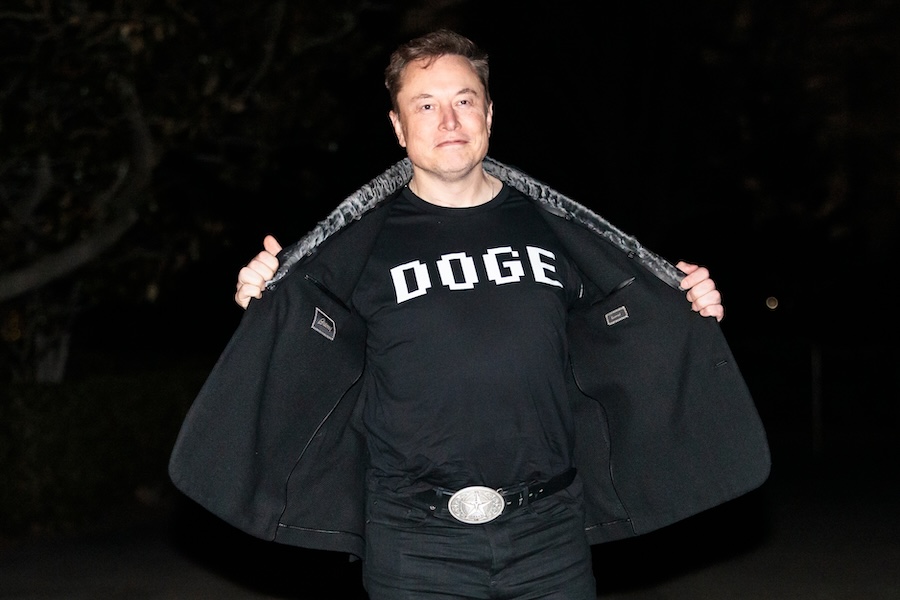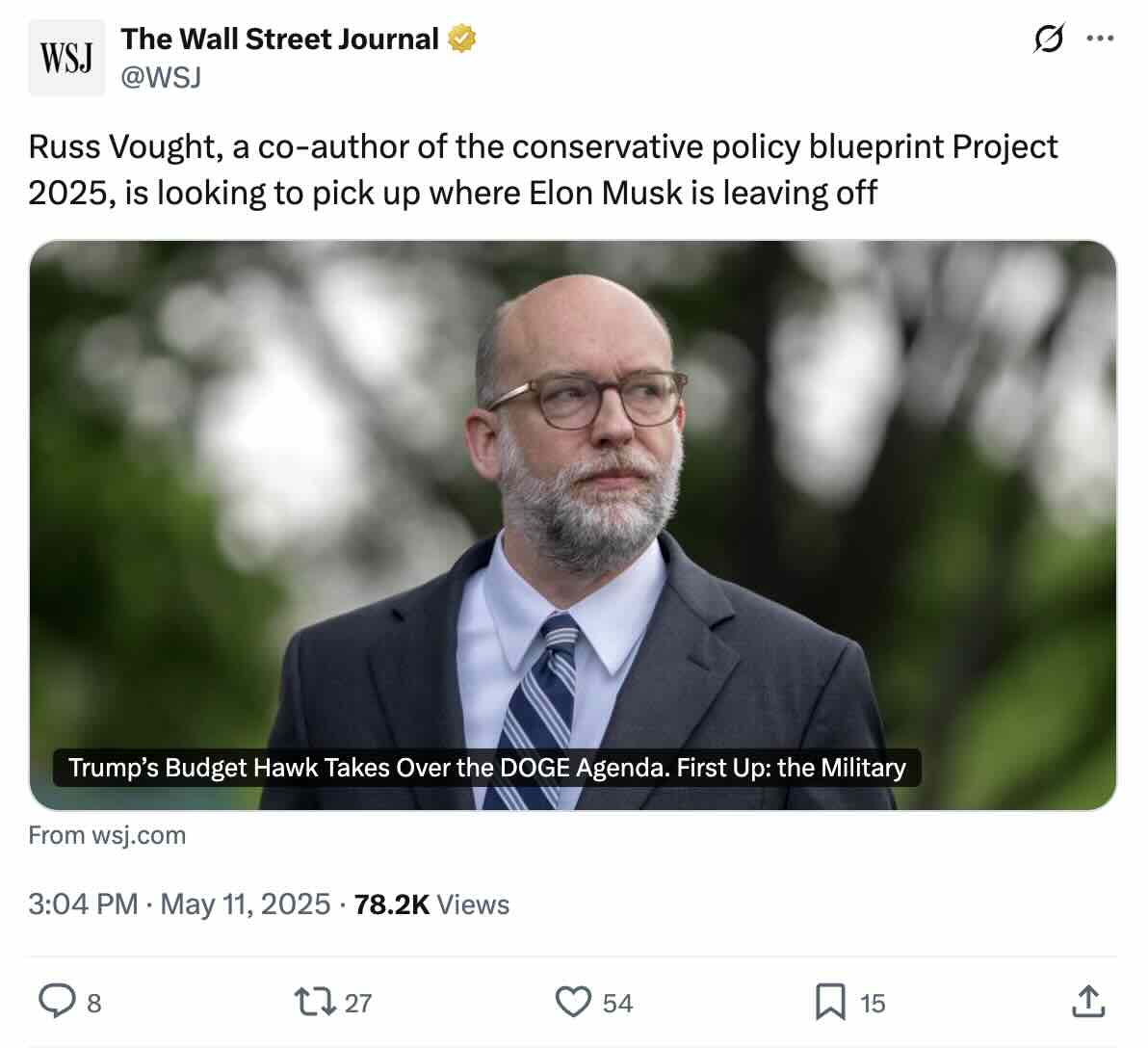Politics
JUST IN: Trump Reveals DOGE’s Next Leader For Post-Elon Era

President Donald Trump has tapped an old ally to take the reins at the U.S. Department of Governor Efficiency, which will soon be without its original leader.
Elon Musk, who has been by Trump’s side since the two launched DOGE in the first hours of the administration, has announced he soon plans to depart the federal government and return to managing Tesla, the electric vehicle company he founded and which has suffered the brunt of protests and boycotts in response to his cost-cutting agenda.
The direction of DOGE will fall to Russ Vought, director of the White House Office of Management and Budget, who will pick up where Musk left off: negotiating spending cuts with Congress, reclassifying federal employees, and advancing the president’s proposed 2025 budget.
Already, Vought has drawn the ire of national security hawks in the U.S. House and Senate for his insistence that military appropriations be made through budget reconciliation, rather than the nation’s annual budget, while proposing that all branches of defense essentially remain level-funded.
His offer of $892.6 billion puts the new DOGE director at odds with U.S. Defense Secretary Pete Hegseth and other senior Republicans who had pushed for more funding, according to lawmakers and congressional aides who spoke with the Wall Street Journal.
During President Trump’s cabinet meeting last month, he told advisors and reporters that Musk was “invited to stay as long as you want—at some point he wants to get back home to his cars.”
In an earnings call around that same time, Musk identified boycotts by left-wing activists as a serious threat to the future of Tesla, whose stock had fallen more than 70% since he joined the Trump administration as a special government employee.
They “will try to attack me and the DOGE team and anything associated with me,” he said.

Vought’s debut atop DOGE aligns with House-led efforts to slash federal spending in order to fund significant tax cuts demanded by Trump. On Sunday, House Republicans released a budget blueprint that trims federal spending by $912 billion, though it stops short of deeper Medicaid cuts that were being discussed.
Once a budget is passed, there is the real possibility that Trump would seek the “authority to impound funds” — advocated by Vought — which would see the president refuse to spend congressional appropriations and likely set off a fight between lawmakers and the White House about who controls the nation’s purse strings.
A senior OMB official working closely with Vought told reporters last week that impounding funds has not been taken “off the table.”
Democrats have assailed the administration’s utilization of DOGE to slash federal spending as authoritarian actions that usurp the allocations made and agencies established by Congress. They have pointed to the effective dismantlement of USAID and the Department of Education as run-arounds that avoid the block-and-tackle decisions on spending in legislative negotiations.
In the coming months, DOGE is expected to focus on repealing regulations across the government, according to a Feb. 19 executive order that directs agency heads to eliminate “unlawful regulations” under their purview.
Vought is likely to turn his attention to Schedule F, an executive order Trump signed in 2020 that sought to eliminate job protections for thousands of federal workers. The order had been blocked by the Biden administration, but Trump said he will renew his mission to “restore accountability to the career civil service.”

